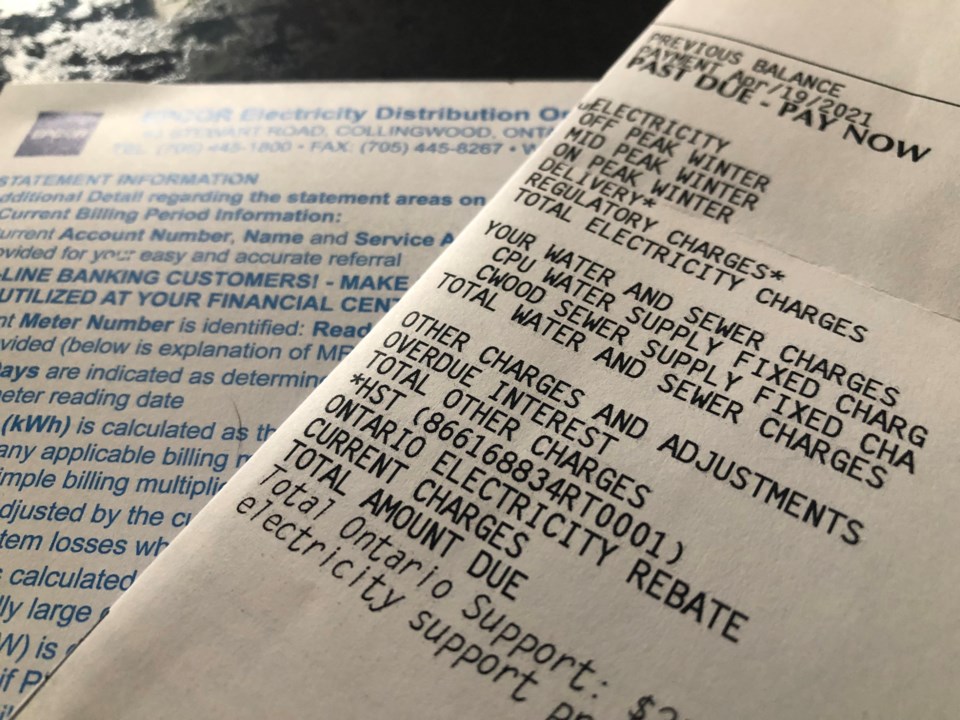Town council was split this week over a decision on how to handle water and wastewater billing moving forward.
During Monday’s (March 7) strategic initiatives standing committee meeting, councillors received a report they first requested back in February, comparing the costs of continuing to have water, wastewater and electrical billed to taxpayers through EPCOR, versus making a change to billing water and wastewater separately, in-house.
At Monday’s meeting, Mayor Yvonne Hamlin said she was in support of a change.
“It seems to me that the town should bill for the services it provides,” she said. “I don’t know why we would pay a premium for another company to bill for a service we provide.”
“We have some efficiencies here,” said Hamlin.
As of now, ratepayers receive one bill from EPCOR for three services (water, wastewater and electricity), however the staff report explored whether it might make more sense to provide the taxpayer with two bills: one from EPCOR for electrical and another from the town for water and wastewater. EPCOR provides the electric utility service to Collingwood customers, but water and wastewater is provided by the town.
While EPCOR deals with the billing, the town still has the responsibility to follow up if an account goes into arrears or if there are billing errors.
For 2023, the current cost of service provided by EPCOR is $650,000. After speaking with EPCOR regarding the town exploring their own options, EPCOR offered to reduce their rate to $520,000.
If the town moved toward in-house water billing, staff estimates a 12-bill-a-year model would save about $426,888 over the first four years of a switch, while a six-bill-a-year model would save about $839,050 over four years.
Some of the benefits of moving to in-house billing for water and wastewater include that the town will be able to keep landlords in the loop when tenants aren’t paying their bills, and town staff would have full access to meter data sets.
If moved in-house, water and wastewater billing would be overseen by the town treasurer, with the addition of one full-time utility billing collector, one billing clerk under contract for 2.5 years and a 40 per cent full-time water assistant, which is already in place.
Some of the benefits of continuing to work with EPCOR, according to the staff report, include that customers are used to the existing system and some enjoy receiving one bill, and the financial savings of the mail-out of one bill.
Tim Hesselink, senior manager of regulatory affairs at EPCOR, attended Monday’s meeting and said EPCOR was of the opinion that moving billing of water/wastewater in-house was not in the best interest of residents.
“We do feel it will lead to increased costs to the customers over time,” said Hesselink, noting that whether EPCOR bills residents for just electrical, or electrical plus water/wastewater, EPCOR still requires the same number of customer service representatives to provide that service.
“It’s a mutually beneficial agreement and we’ve always seen it as such,” he said.
While Coun. Christopher Baines said he was generally in support of moving water billing in-house due to the numbers presented, he expressed concern that cybersecurity to protect resident data might not be enough.
“Has (cybersecurity) been taken into account in this equation?” asked Baines.
Treasurer Monica Quinlan said additional cybersecurity costs had not been factored in.
“We do have an insurance plan that covers cybersecurity,” she said. “We already have that inherent risk as property taxes... come in a similar (way). That risk is already there.”
Coun. Deb Doherty said she was “very conflicted” on the matter.
“The savings that are projected are quite substantial, on the other hand, the synergies we currently benefit from continuing with EPCOR... gives me great confidence that we win regardless,” she said.
At the end of discussion, council voted 4-4 to defeat the recommendation to move forward with billing water and wastewater services in-house and terminate the billing agreement with EPCOR, with Coun. Chris Potts, Coun. Deb Doherty, Deputy Mayor Tim Fryer and Coun. Kathy Jeffery opposed. Coun. Rob Ring was absent from the meeting.
The decision will next come before council on March 20 for a vote.

